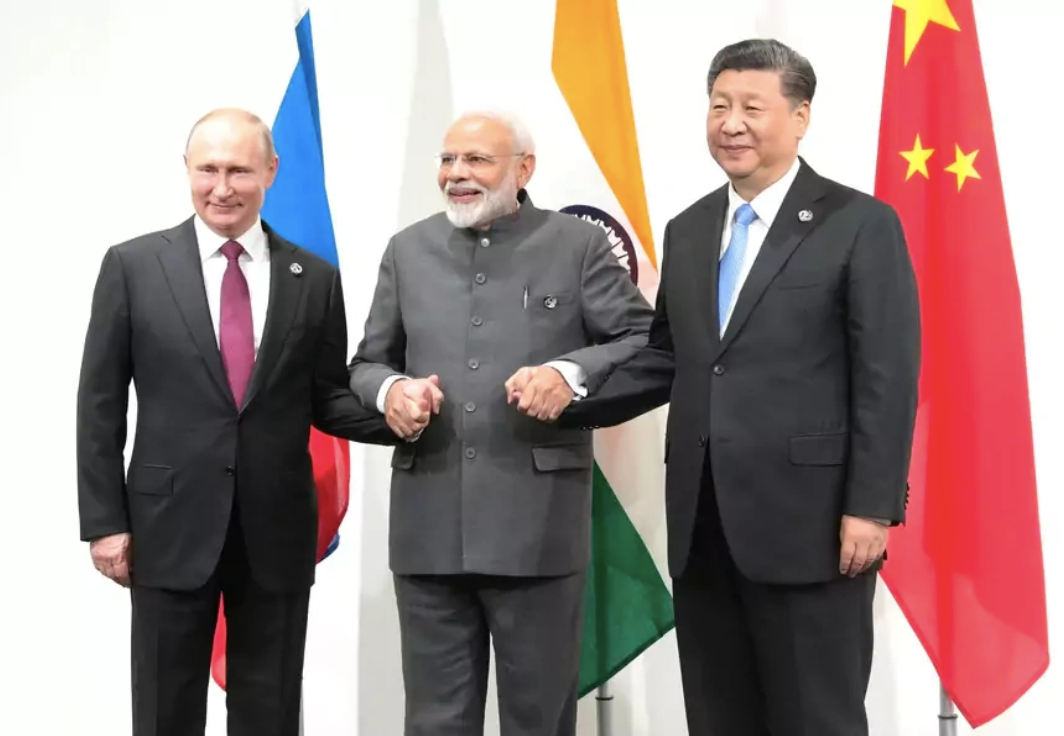India, China and the UN Charter Order in the Age of the Russia-Ukraine Crisis
José E. Alvarez (Left) and Dr. David M. Malone (Right)
On Monday, Oct. 24, 2022, the NYU School of Law U.S.-Asia Law Institute (USALI) and the Asia-Pacific Economic Cooperation (APEC) Study Center at Columbia University held a conversation with U.N. Under-Secretary General David M. Malone. The event, “India, China and the U.N. Charter Order in the Age of the Russia-Ukraine Crisis,” was moderated by José E. Alvarez, Professor of International Law at NYU.
The event, as a part of the USALI Speaker Series, fields an expert to weigh in on current developments and their function within the bigger picture of international politics. Professor Alvarez began the event by introducing Dr. David Malone, noting his ambassadorship for Canada to the United Nations, presidency of the International Peace Academy, and senior fellowship at NYU Law, among a plethora of diplomatic positions and scholarly publications. Alvarez pivoted the introduction of Malone’s experiences into the framework of the conversation: “considerable soul-searching among U.N. members and scholars about the future of the U.N.” as a result of the Russia-Ukraine conflict. Concluding the preface for the conversation, Alvarez discussed Malone’s role as Canadian high commissioner to India and non-resident ambassador to Bhutan and Nepal, introducing the regional specificity for the conversation: India and China.
Malone began his discussion of a principle development, India’s policy platform on condemning, or rather not condemning, the Russian annexation of land. He stated that, like China, India and countries of the developing world have a difficult time driving consistent policy choices in the conflict, and despite perhaps having “a preference amongst the belligerents, when it comes to votes of the U.N. they tend to abstain.” He mapped out the current course of voting opportunities for U.N. states, noting two in particular that concerned Russian condemnation, one on China’s status in the Human Rights Council, and one regarding support to Ukraine a week prior to the conversation. Highlighting the course of abstentions in the first few votes to the lopsided support for Ukraine in the most recent vote, Malone indicated that patience with Russia and their leverage of potential benefits to the developing world may be dwindling.
Transitioning over to China, Malone spoke a different political strategy unfavorably to Russia: cautiousness. Unlike Russia’s usual bilateral partnerships, like weapons trade with Iran, China has not actualized the Putin administration’s expected level of support. Although there are internal party factors that could be contributing to this development, Malone chalked it up to simple prudence.
Russian President Vladmir Putin, Indian Prime Minister Narendra Modi, and Chinese President Xi Jinping at the G20 Summit in 2019 / Photo: Mikhail Klimentyev/Reuters
Still, Malone roped the conversation back to economic and historical policy preferences, of which “non-alignment” reigns supreme. He noted that many developing countries are keen on not making specific alignments with any superpower over another on the count of it not providing a reasonable advantage. Answering a question posed by Alvarez on India’s engagement at U.N. meetings, Malone discussed that India’s steadfastness, despite perhaps frustrating Biden and Putin, has not hurt India. China has a larger economy than India, but India is growing faster than China. India has thus acted more passively as of late, while China, realizing the evolving economy, has instituted some aggressive policy measures. The implications for this contrast plays into current India-China relations, with a few violent clashes in the past few years.
Alvarez then posed a broader question about the U.N. activity and existential crisis. In response, Malone acknowledged the unusual situation of having two of the five permanent member states largely aligned on Ukraine. He mentioned that even the Secretary General took a bold stance on denoting Russia’s military actions as acts of aggression. Though it doesn’t raise an existential crisis, the diversion from neutrality is a new approach for the U.N. leadership.
During the Q/A portion of the session, one of the attendees asked about the message an abstention vote from countries like “Uzbekistan, Kazakhstan, Tajikistan, [and] the former Central Asian Soviet countries who are also abstaining as a block,” differ from countries like India and China. Malone noted that this was Russia’s greatest failure, its expectation that countries with meaningful relations with Russia and China would vote according to Russia. The reality of the policy platform is that these countries in this difficult diplomatic situation are actually looking to China for their policy alignment, which results in the non-alignment policy.
After fielding further questions about China’s internal policy and Japan’s platform with respect to their stagnated economic conditions and de facto relevance, Malone made a bridge back to the question of the survivability of the United Nations. Alvarez highlighted the potential drawbacks of having authoritarians in the room making decisions of human rights and democratic values, to which Malone weighed the value of the Human Rights Council with its current operational efficiency. Ultimately, he concluded by arguing “unless the UN can learn to be a more systematically engaged and positive player,” a task that doesn’t require more resources but perhaps a different organizational framework, the efforts to combat conflicts like the one in Ukraine will continue to grow more futile.


